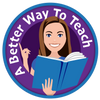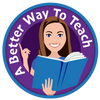I love a good book that gets into the nitty-gritty of writing craft, especially when it considers the types of writing that most people will do in real life.
If you teach high school English, your students may wonder why writing an analytical essay on Hamlet’s view of death matters at all. Will they be analyzing Shakespeare’s double entendres once they leave high school? Honestly, probably not. Although we could argue the value of analyzing literature and writing about literature, it’s important that students get a chance to really consider the types of writing they will be doing in real life, and prepare for those as well.

This is where the book Write For Your Life comes into play. This super short book by Charles Wheelan is a great resource for your classroom, and definitely worth the time it takes to read the 170 pages. However, since you might not have the time to read it right now, I’m going to give you a few highlights.
Takeaway #1: Writing Matters Because You Will Use It In Lots of Ways
The whole premise of the book is that there are a ton of ways a person will write in her life beyond high school and college, and developing the skill to write well is invaluable. As Wheelan puts it “Whatever you do, good writing will help.”

As teachers, we know this, but we need to share this with our students explicitly. Throughout the book, Wheelan uses examples that are not academic in nature: entrepreneurs, comedians, journalists, CEOs, judges, and a person looking to receive an extension on his rent payment. No matter what a person’s life ends up looking like, if he has a strong grasp of how to write well, he will do better.
Takeaway #2: A Lot of Work Happens Before You Even Start Typing
I have stars and underlines all up in this section because Wheelan addresses what I often hear students say: that they don’t need to do any prewriting. This is a huge problem, and I love that Wheelan goes into detail about each piece of prewriting that must happen.
Writers Have To Think About Purpose and Audience
I could really get on a soap box about purpose and audience, but I’ll cut to the gist: most students do not think much about their audience at all. Isn’t that sad? Does it make a single tear well up in the corner or your eye? I mean someone is going to take their valuable time time to read this narrative or essay or letter or opinion piece, and the writer has not even thought about them? That’s terrible.
So, yes, purpose and audience matter tremendously. Let’s give them some thought.
As Wheelan explains, if you can’t answer the question about why you are writing something, then you can not define what “good writing” will look like for this particular task. Once you know why you are writing and for whom, you can start thinking about the best way to go about it.

A Thesis and An Outline Will Lead To Better Writing
After a person considers her purpose and audience, she still should not start typing. Wheelan describes in detail how one should figure out her thesis, organize her thoughts, and make a (pretty detailed) outline before every typing a complete sentence.
Yes, this is a lot of prewriting. And many times students will say “I don’t do all that. I just start typing and it kind of comes together.” Sound familiar? Wheelan says, “Too many writers begin by typing, which is not writing.” He uses an example about how if you were going to write a complaint letter to the condo board and you just start typing, you are going to end up with “a garbled mess.” This, I’d agree, is true of any type of writing.

If a person just starts typing, it often doesn’t come together. It rambles and loses direction. And many times (all the time) that does not get fixed later in the writing process. Listen, the guy that wrote this book is an award-winning journalist. I feel like we can trust him that organizing before you write is actually a good idea.
Takeaway #3: Grammar Matters
If you’ve ever read this blog, you know that grammar matters to me, so it’s always nice to find someone who agrees.
There are some beautiful nuggets in this section of the book, but one thing that had me nodding and proclaiming “amen” to is when Wheelan says, “I have taught university students for two decades. I have never read great writing with bad grammar. Not once.”

Wheelan explains grammar as what “provides the rules that allow our brain to absorb the written and spoken word. Clear writing,” he says, “requires grammar.” That’s just the way it is. Our brains need grammar to understand what is happening on the page.
A few of the specific grammar concepts that Wheelan says matter are the following:
- Subject-verb agreement
- Parallel structure in a series
- Avoiding run on sentences
- Clear antecedents
- Using the active voice
Wheelan teaches at an ivy-league school, and his students still struggle with these grammar concepts. That should be enough for you to consider going over these concepts with your high school students. It will definitely help them if they go on to college, but it will also (as the book clearly explains) help them in any field they pursue.
But how should you teach the concepts? Don’t worry about that part. I’ve got a research-based, student-approved method. For every single one of those tricky grammar concepts, you can use mentor sentences and a few other scaffolding techniques to allow your students to grasp the concept and work it into their own writing.
You can click on any of the links above and find a lesson that goes with it, or download the free unit below that will help you get started teaching grammar in a way that resonates with your students.
Takeaway #4: It’s OK To Write Ugly Sentences
This is a key concept for those students who get overwhelmed with perfectionism to the point of paralysis.
Although Wheelan speaks highly of the prewriting process, once a person gets to the point of actually writing, they should “just keep putting one ugly sentence after the other.” Wheelan goes into detail about all the clean up that happens after the first draft, and gives great suggestions on turning those ugly sentences into beautiful prose, but this statement just really stood out to me, partly because it comes after a lot of prewriting, and partly because it frees you up to write.
And really, if a person has spent the time they should have on the prewriting process, Wheelan describes how the sentences that come out, actually aren’t that ugly. The clean-up process is a lot faster when a person has a strong sense of purpose and audience as well as a strong thesis and outline.
General Takeaways
Writing matters no matter what your students end up doing in their lives. Be willing to give them examples, like Wheelan does, of writing in the context of the "real world."
Don’t be afraid to require your students do some really detailed prewriting. Again, if an award-winning journalist speaks highly of the prewriting process, that should be good enough for your students.
And of course, grammar matters. When students have a strong grasp of grammar, they have more tools for great writing.
Related Reading
How To Tackle Boring Sentences: Teach Parallel Structure
4 Amazing Ways To Give Your Students Authentic Audience When They Write
What Are Mentor Sentences and How Can They Help You Teach Writing?
Shop This Post
Write For Your Life By Charles Wheelan






Leave a comment